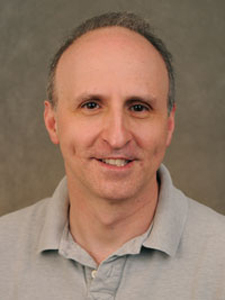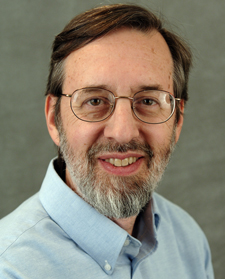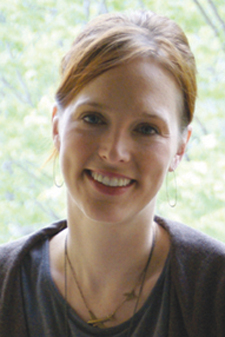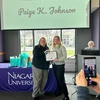The Fall 2015 College of Liberal Arts and Sciences Brown Bag Lecture Series begins on Wednesday, Oct. 7 at noon in the Williams Center Room 204ABC with discussions on “The Nature of Time.”
 |  |  |
| Dr. Neil Feit | Dr. Michael Grady | Associate Professor Megan Urban |
Dr. Neil Feit of the Department of Philosophy and Dr. Michael Grady of the Department of Physics will present, “Two Theories of Time and Three of Reality,” and Associate Professor Margaret “Megan” Urban of the Department of Visual Arts and New Media will discuss “Testing of Atomic Bombs in the Atmosphere: One Small Second That Changed the World.”
According to Feit and Grady, one of the biggest mysteries faced in philosophy is in understanding the nature of time. There are many questions, some of which are answered by Einstein’s theory of relativity. In his presentation, Grady will describe his alternative theory called the phase-boundary universe, capable of explaining the origin of both relativity and quantum mechanics. Feit will discuss the various schools of thought in philosophy on the nature of time, two competing theories, and three related conceptions of physical reality.
Grady is a professor of physics and has been teaching at Fredonia for 28 years. His work focuses on the areas of theoretical elementary particle physics, phase transitions, quantum theory and cosmology. Feit is a professor of philosophy and has been teaching at Fredonia since 1999. His work mostly focuses on the philosophy of the mind. He also has research interest in ethics, epistemology, the philosophy of language and some areas of metaphysics.
Ms. Urban will be discussing “science as faith” in her presentation. She describes that in order for the scientific method to function, the scientist must have faith in its outcome. Yet such faith may blind scientists to the consequences or implications of resulting knowledge.
Urban is a faculty member in the Department of Visual Arts and New Media. As a visual communicator, she approaches science as an outsider, but is fascinated by the complexity of its history and the implications for humanity and morality. She explains that “I do not, and cannot, posit conclusions. I simply use my contemplation and questioning as inspiration for my work.”
The event is free and open to the students, faculty/staff and the general public. Light refreshments will be served. For further information about this event, contact Laura Johnson at 716-673-5512.



